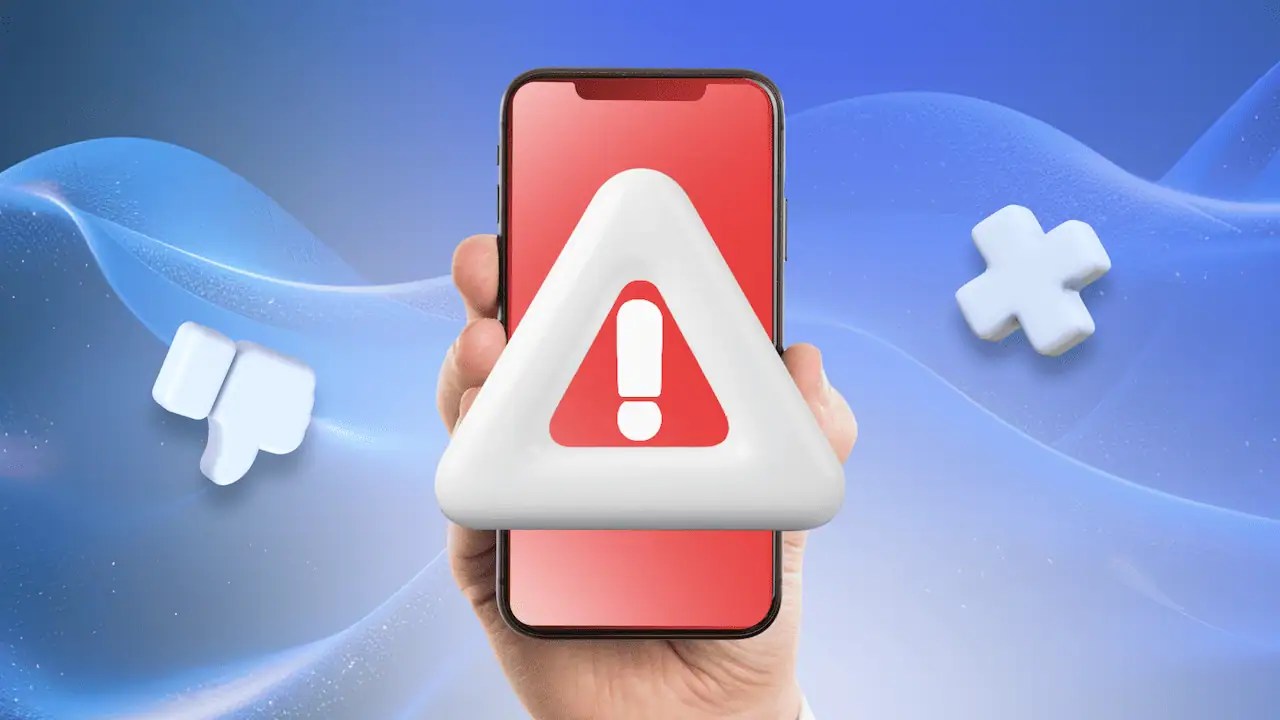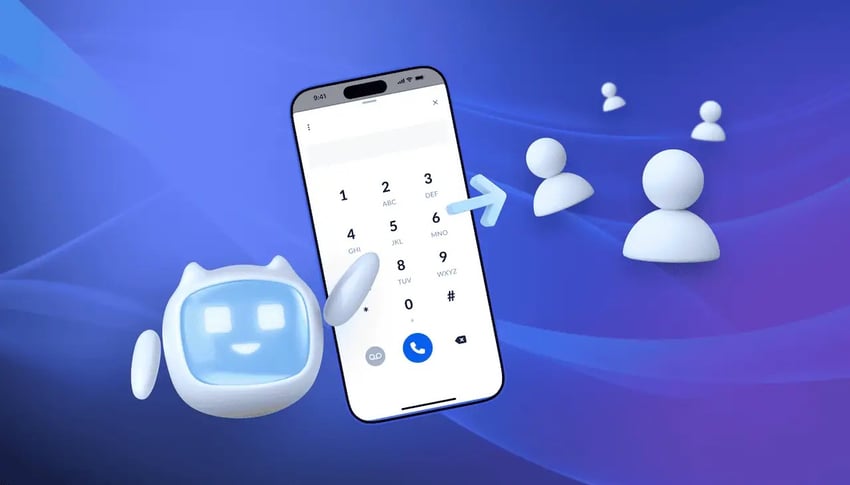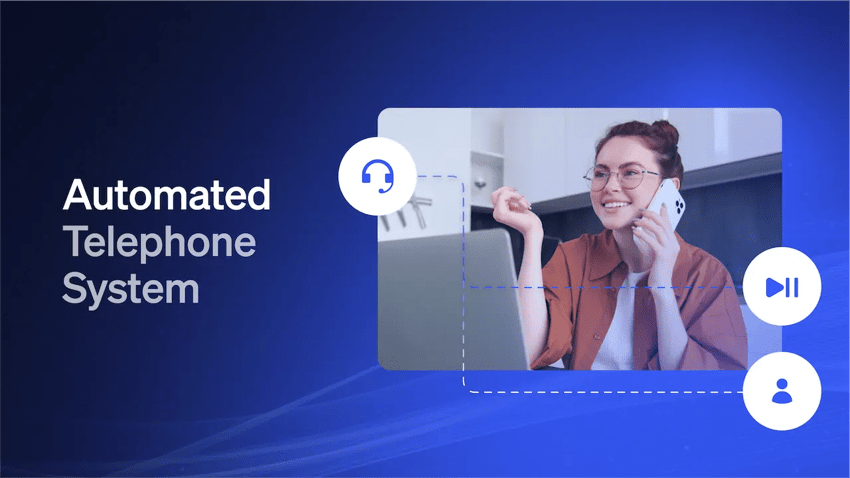Nobody likes getting calls from unknown numbers. Spam calls are on the rise and customers are naturally more defensive against frauds and scams. But when your business calls get mistaken for spam, it’s a serious problem.
Customers might miss out on important information, and your business reputation suffers. The solution? Making sure your phone numbers have a good “caller ID reputation.” This article explains what caller ID reputation means, why it matters, and how to protect your business from being wrongly labeled as spam.
What Is a Caller ID and Phone Number Reputation?
Caller ID and phone number reputation are critical elements in how phone calls are perceived and handled by recipients, especially in the context of business or outbound calling.
Caller ID is a system that displays the caller’s name and number. Technically, caller ID only provides the phone number. The caller’s name is transmitted by a caller name delivery service called Caller Name (CNAM).

CNAM is a database that network operators and service providers use to associate a name with a phone number. Network operators can overwrite the CNAM information with other labels to warn recipients about risky or unwanted calls, such as “spam risk” or “telemarketing.”
Phone number reputation refers to how trustworthy or suspicious a number is perceived by carriers, call-blocking apps, and recipients. It’s influenced by how the number is used, such as:
- Call volume and patterns – High call frequency with short durations can raise flags.
- Answer and complaint rates – A high rate of hang-ups or consumer complaints can hurt your reputation.
- Caller behavior – Aggressive, spammy, or deceptive tactics (e.g., spoofing) lead to penalties.
- Inclusion on spam lists – Numbers reported to apps like Hiya, Nomorobo, or carrier analytics may get flagged as spam or scam likely.
Why caller ID reputation matters for your business
Caller ID reputation matters for your business because it directly impacts whether people trust and answer your calls. If your number is flagged as “Spam Risk” or “Scam Likely” by carriers or call-filtering apps, most recipients will ignore the call—regardless of your legitimacy.
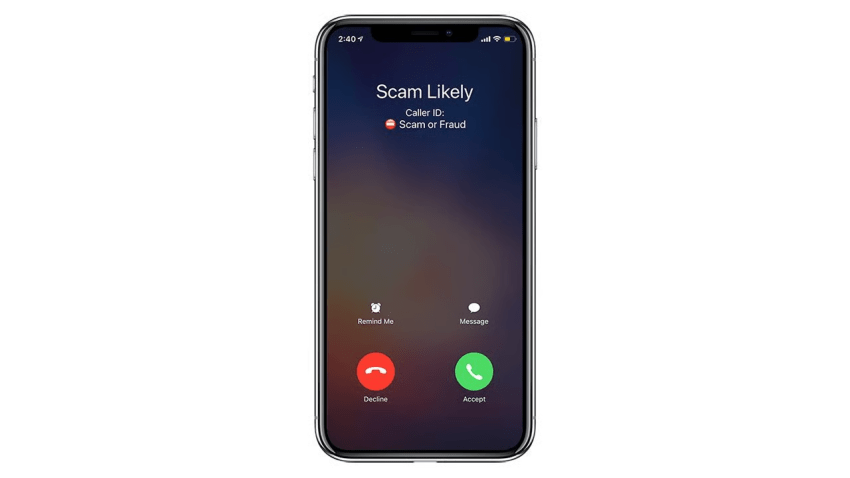
This leads to fewer answered calls, lost sales opportunities, and wasted resources as your team spends time dialing numbers that go unanswered or are blocked. A poor reputation also damages your brand’s credibility before a potential customer ever hears your pitch.
Ultimately, your caller ID is the first impression you make—if it’s not trusted, the conversation never starts.
Top Reasons Your Number Might Be Flagged as Spam
Carrier networks use different systems, like ANI (Automatic Number Identification), to identify the caller’s originating phone numbers. They monitor call volume, frequency, and interaction to detect spam factors. A number will likely send spam if it receives consumer complaints directly or through a third-party call-blocking app.
Moreover, noncompliance with the Telephone Robocall Abuse Criminal Enforcement and Deterrence Act or the Telephone Consumer Protection Act (TCPA) strongly indicates that a number could be used for spam. If a phone carrier detects these characteristics, they’re likely to flag a phone number as spam.
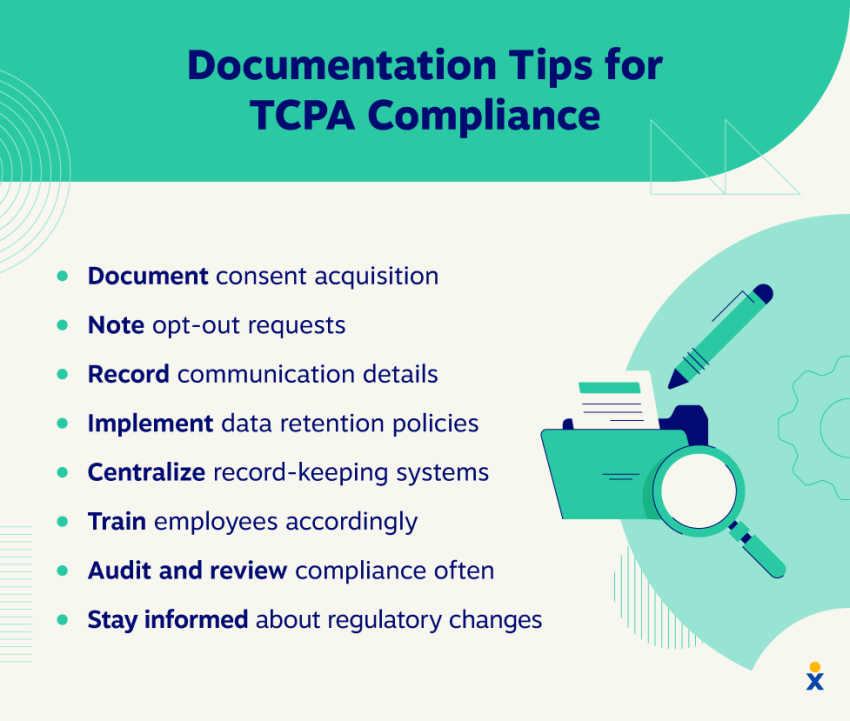
In a nutshell, the top reasons a business phone number might be flagged as spam include:
- High call volume and frequency with low engagement
- Frequent short calls
- Calling too many numbers too quickly
- Customer complaints and reports
- Lack of caller ID registration
- Negative caller name display
- Regulatory and carrier safeguards (carriers can block or flag numbers aggressively to protect consumers, which sometimes affects legitimate businesses as well)
FCC Regulations and Legal Compliance
FCC regulations and compliance refer to the rules set by the Federal Communications Commission (FCC) in the United States to ensure legal, ethical, and respectful use of communication technologies—especially phone calls and text messaging.
These regulations are particularly important for businesses conducting telemarketing, sales, support, or automated outreach, and violating them can result in fines, lawsuits, or getting blacklisted.
Key FCC regulations for phone calls include:
- TCPA (Telephone Consumer Protection Act). Enacted in 1991 to restrict telemarketing calls, autodialing, prerecorded messages, and now explicitly covers marketing text messages. It established the National Do-Not-Call Registry, enabling consumers to opt out of unsolicited calls.
- Do Not Call (DNC) Compliance. Businesses must scrub contact lists against the National Do Not Call Registry. Calling someone on the list without permission can lead to hefty penalties.
- STIR/SHAKEN. A caller ID authentication framework that helps combat spoofed and fraudulent calls. It ensures that your number can be verified as legitimate by carriers.
- Robocall and Autodialer Restrictions. You cannot use an autodialer or artificial/prerecorded message to contact mobile phones without prior consent. Exceptions apply for non-marketing calls (e.g., appointment reminders or emergencies).
- Caller ID Requirements. It is illegal to deliberately falsify caller ID information (spoofing) to mislead the recipient.
How to Improve and Maintain a Good Caller ID Reputation
Below are some precautionary steps that you can take to maintain a good caller ID reputation.
1. Register your business numbers
You can validate your caller ID using services like STIR/SHAKEN authentication. STIR/SHAKEN is short for:
- STIR: Secure Telephone Identity Revisited
- SHAKEN: Signature-Based Handling of Asserted Information Using ToKENs
As mentioned above, STIR/SHAKEN is a set of protocols that telephone service providers use to authenticate a caller’s ID. It helps carriers verify that the caller ID information is accurate and hasn’t been spoofed.
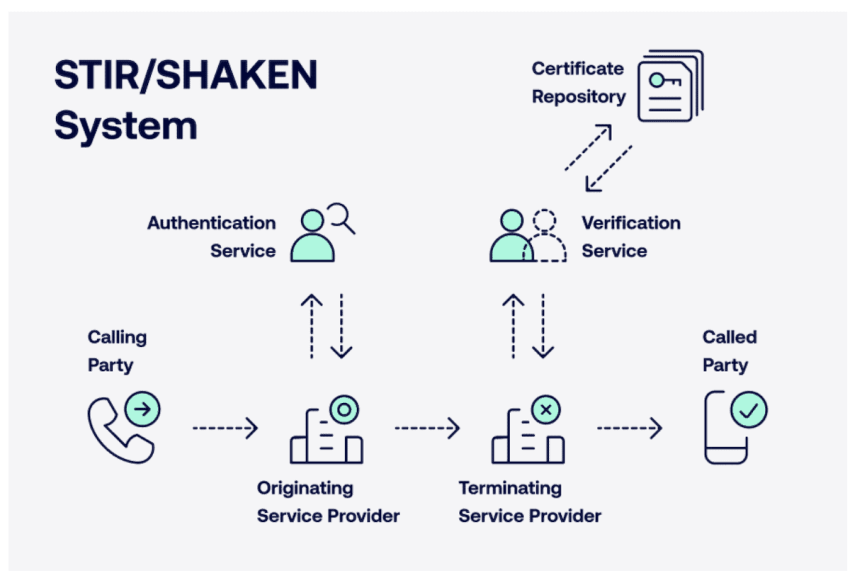
When you register your number across carriers and analytics engines, you get unified call labeling across the ecosystem. Make sure this number is consistent across online listings, CRMs, and websites. This will help you maintain a uniform identity and enable carriers to keep your labeling consistent.
2. Monitor your caller ID reputation
Regular monitoring should be carried out as a routine check. You can manually test how your number appears on major carriers. To do this, have colleagues or friends with different carriers call you and report what they see.
Alternatively, check directories of popular call-blocking applications. These will give you insights into the present status of your phone numbers and their reputation.
Also, consider requesting caller ID verification with your phone service provider. You’ll likely need to check with the carrier first on how to get the caller ID verified. Most would require relevant identification documents. The process becomes easier when you’re using a third-party phone service. With Nextiva, you can update calling names and number settings directly from the platform.
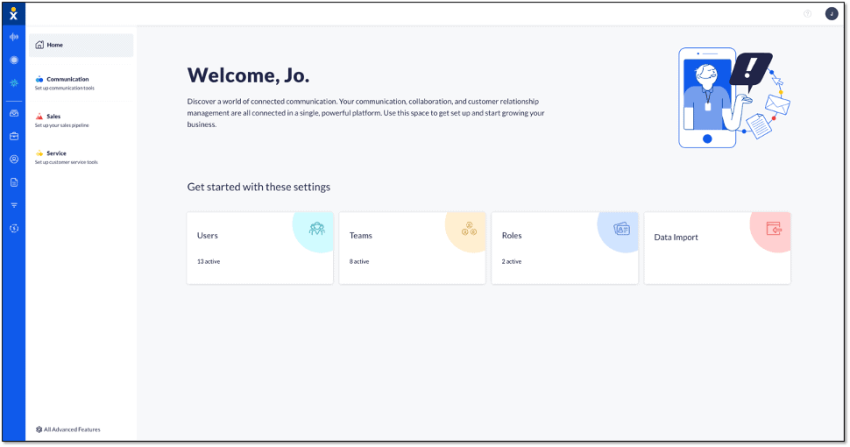
3. Maintain a healthy call-to-answer ratio
If you make a lot of outbound calls from a single phone number, it’ll be flagged as spam. Maintain a balanced ratio of outgoing to incoming calls in your contact center or call center. A good rule of thumb is to aim for at least a 1:1 ratio, and ideally, make more inbound calls than outbound calls.
If necessary, try rotating numbers and maintaining a reasonable frequency. Avoid making multiple outgoing calls from one phone number.
Inbound calls typically have a higher call-to-answer rate. This shows your network provider that you answer calls of a reasonable length on the same number as incoming calls and helps them identify you as a reputable business. Consider using multiple phone numbers for different departments or campaigns.
4. Avoid common triggers for spam flags
Avoid generic caller ID names like “Sales” or “Service Team.” Use your actual company name instead. When making outbound calls, always maintain consistent spacing between calls to avoid repeated calls to the same number.
It’s important to respect customers’ choices and obtain their consent before contacting them. Comply with the Do Not Call list and obtain consent before contacting potential customers.
If you use a single contact script, vary it and create multiple scripts, as the network operator may detect a recurring pattern that could indicate spam. While this may not always be the case, it’s wise to take precautions. Regularly check your call logs against the National Do-Not-Call Registry.
5. Leverage branded caller ID and verified calls
Use a branded caller ID so your recipients can distinguish your calls from other calls from unknown sources. Your recipients will see the company name when they call rather than the “unknown number” label.
Services like Nextiva enhance your caller ID by displaying your company name, logo, and even the reason for the call. This increases response rates and builds trust. Nextiva’s caller ID branding feature helps you stand out from the high volume of spam from modern buyers. Simply choose your caller ID and obtain consent from customers before contacting them.
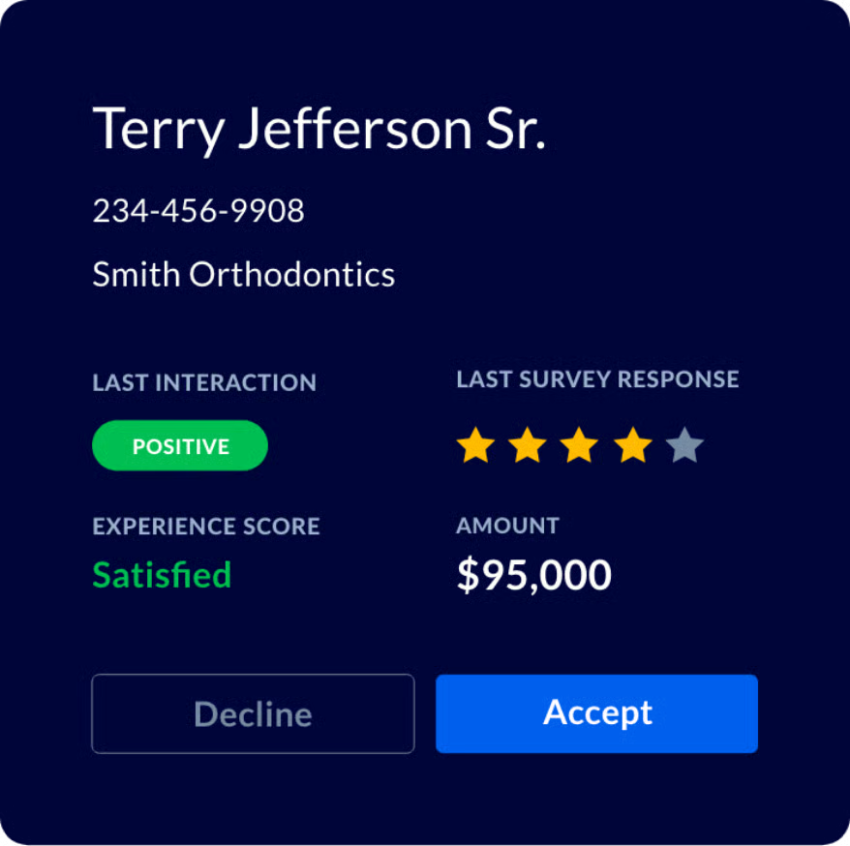
Additional Factors That Impact Caller ID Trustworthiness
Beyond call volume, connection rates, and complaint rates, below are some other factors that influence how trustworthy a caller ID appears:
Online reputation and business listings
The phone is just one of many channels your business uses. Your overall credibility relies on maintaining your brand reputation on social media, your website, Google Business, and LinkedIn.
When someone searches for your business, they shouldn’t see conflicting information. This creates suspicion — not only among existing or potential customers but also among mobile providers. Ensure your business name, address, and phone number are consistent across all online platforms.
Telecom provider trust scores
Some major mobile carriers assign phone numbers a reputation score between 0 and 100. The higher the score, the greater the risk that a robocaller is initiating the call. Analyze your Session Initiation Protocol reports to verify the results of phone number reputation searches.
You can also request feedback from your provider when it comes to reviewing your trust score. If your score is inaccurate and flagged as spam, you can appeal for a more thorough review and avoid having your phone number flagged as spam.
Customer complaints and reviews
If an outbound campaign goes off track, it may increase customer complaints about spam, which could cause the provider to flag your number as spam. Negative reviews may be associated with these complaints. Respond proactively and address the situation to avoid losing your customers’ trust.
Tools like Nextiva’s reputation management software consolidate all reviews from different platforms into one view. This makes them easier to manage and prevents reviews from being overlooked.
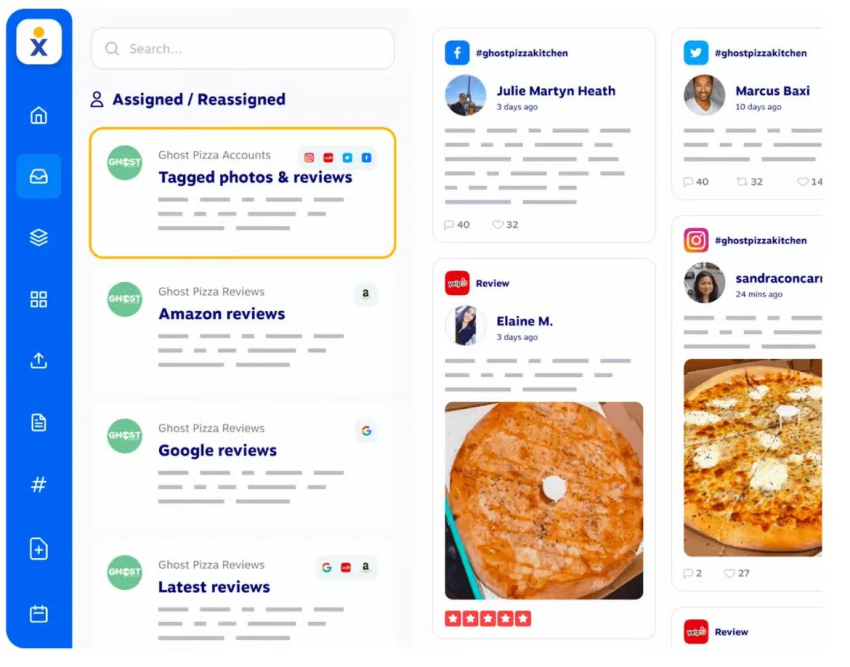
Regulatory compliance
Regulations directly build trust with carriers and customers. Failure to comply leads to a lack of trust and increases the risk of being classified as spam. To prevent this, adhere to TCPA, GDPR, and STIR/SHAKEN.
Failure to comply could result in your number being flagged as spam, fines being issued, or a complete suspension of your service. Ensure that your team is aware of TCPA guidelines, including rules for obtaining consent, providing opt-out mechanisms, and adhering to call time limits.
How to Check Your Phone Number Reputation
If you want to check your phone number reputation, you can use specialized tools and services that monitor how your number is viewed by carriers, call-blocking apps, and analytics platforms. These services help determine whether your number is flagged as spam, scam, or “scam likely,” and show where those flags are coming from.
Here’s how to check your phone number reputation:
1. Use online lookup services
- Caller ID Reputation Services: Services like Truecaller, Hiya, and First Orion allow you to enter your phone number and see how it’s perceived by others, including potential spam or scam flags.
- Reverse Phone Lookup: Tools like IPQS Phone Validation can verify if a number is real and active and provide reputation data like risk scoring and association with abuse reports.
2. Monitor Call Metrics
Keep an eye on call answer rates, call durations, and rop-off or block rates. A sudden dip may indicate a reputation issue even if you haven’t been flagged yet.
3. Check Government Lists
The Federal Trade Commission (FTC) publishes data on Do Not Call and robocall complaints. You can search this data to see if your number has been reported.
4. Manually Call Test Devices
Call a test group of mobile phones on different carriers (e.g., Verizon, AT&T, T-Mobile) to see how your number appears. Look for spam labels, “unknown caller” or generic caller ID, and branded caller ID (if you’ve set it up).
5. Tools to Help Manage Caller ID Reputation
These caller ID reputation management tools and services can help businesses protect the credibility of their phone numbers, making sure their calls are trusted and reach customers successfully.
1. Caller ID Reputation
- Purpose: Real-time spam score tracking across carriers and third-party apps
- Features: Number scanning, fraud alerts, call volume monitoring, remediation options
- Best for: Businesses running outbound call centers or cold calling campaigns
- Website: calleridreputation.com
2. Numeracle
- Purpose: Enterprise-level caller identity and reputation management
- Features: Branded caller ID (where supported), spam remediation, STIR/SHAKEN compliance, registration with analytics providers
- Best for: Enterprises needing robust compliance and call branding
- Website: numeracle.com
3. Free Caller Registry
- Purpose: Prevent your number from being mislabeled as spam across major apps
- Features: One-stop portal to register your number with Hiya, TNS, and First Orion
- Best for: Any business doing outbound calls who wants to be seen as legitimate
- Website: freecallerregistry.com
4. Convoso ClearCallerID™
- Purpose: Protects outbound numbers from being mislabeled as spam to improve connect rates
- Features: Spam flag detection, branded caller ID support, real-time number monitoring, integration with Convoso’s dialer platform
- Best for: High-volume call centers using predictive or power dialers
- Website: convoso.com
5. IntelePeer Reputation Management
- Purpose: Helps businesses ensure their calls are delivered and trusted through carrier-grade voice services
- Features: Spam mitigation, STIR/SHAKEN support, number health analytics, CNAM and call branding capabilities
- Best for: Enterprises using CPaaS or UCaaS platforms for outbound voice
- Website: intelepeer.com
6. Caller ID Reputation (CallerIDReputation.com)
- Purpose: Comprehensive phone number reputation monitoring across multiple networks and databases
- Features: Real-time spam label detection, daily score tracking, alert system, remediation tools for flagged numbers
- Best for: Businesses running multiple outbound campaigns that need to proactively manage number health
- Website: calleridreputation.com
7. Kixie Caller ID Reputation Management
- Purpose: Built into the Kixie sales engagement platform to optimize phone number performance
- Features: Real-time monitoring of outbound number status, spam detection, intelligent number rotation
- Best for: Sales teams using Kixie for outbound calling and CRM integration
- Website: kixie.com
Better Caller ID Reputation Management and Outbound With Nextiva
Maintaining a strong caller ID reputation is no longer optional—it’s essential for any business that relies on phone communication. With spam filters becoming more aggressive and consumers increasingly wary of unknown numbers, protecting your number’s credibility ensures that your calls are seen, trusted, and answered.
By understanding the factors that lead to spam flags, using caller ID management tools, and following FCC regulations, businesses can build trust, improve connection rates, and safeguard their brand’s reputation. Remember, the first step to starting a conversation is making sure your call gets through.
Nextiva offers predictive and power dialers to optimize the dialing frequency so your numbers aren’t flagged as spam. Call volume is evenly and intelligently distributed among verified numbers, minimizing spam flagging.
The platform also ensures you comply with all relevant regulatory requirements, so you don’t experience any unpleasant surprises later. Nextiva offers a customizable caller ID with real-time analytics to track flagged numbers. This improves your visibility and helps protect your business reputation.
Instead of relying solely on the phone as a channel, Nextiva’s unified CX platform lets you integrate phone, SMS, email, and chat to enable an omnichannel communications strategy.
Ready to uplift your business’ reputation across all channels? Try Nextiva. 👇
Build Amazing Customer Experiences
Transform customer experience on a Unified Customer Experience Management platform designed to help you acquire, retain, and grow your customers.


















 Business Communication
Business Communication 

